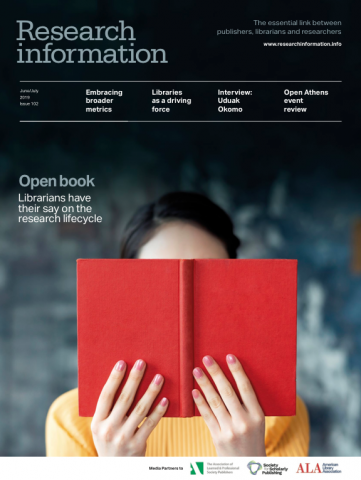Driven by the data?
17 May 2019
The mechanisms of scholarly communication are showing their age, writes Daniel Hook

The mechanisms of scholarly communication are showing their age, writes Daniel Hook
Joe Tragert explains how to leverage discovery platforms as information literacy training tools
As metrics continue to condense research, data industry players are seeking a broader view, reports Rebecca Pool
Authors need to be reconnected to the library to make it the starting point for research, argues Robert Lisiecki
